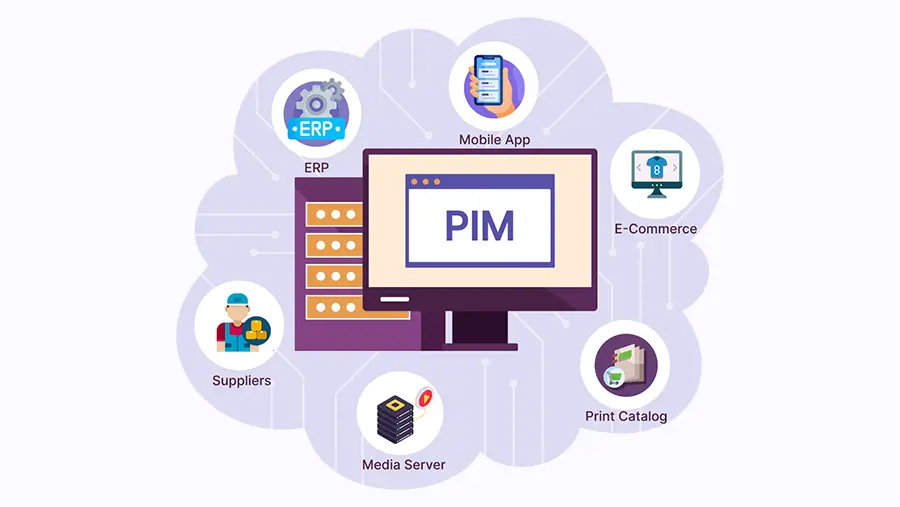What is Product Information Management (PIM) for eCommerce?
altiusnxt
on
February 18, 2025

Introduction
In eCommerce, businesses handle substantial volumes of product data, including descriptions, technical specifications, and stock levels. A Product Information Management (PIM) system is designed to organize and regulate this data, ensuring it is uniform and easily accessible. A PIM system also enhances the user experience by providing customers with readily available and accurate product information as they browse online.
Product Information Management (PIM) involves collecting and managing essential product-specific information, from descriptions to images, in a central location. By facilitating updates to product information, PIM enhances the efficiency of product data management and simplifies the process of adding new products to online platforms. It ensures customers have access to the relevant information when they are ready to purchase.
Information Stored by PIM
When to Use PIM ?
- Data-rich information is needed: When products require detailed descriptions and specifications.
- Multiple suppliers and distribution sources are involved: PIM helps manage data from various sources.
- Frequent updates to prices and product catalogs are necessary: PIM simplifies keeping information current.
When Not to Use PIM ?
PIM may not be necessary if:
- A single platform or distribution channels used: There is less need for centralized management.
- The store deals with a limited number of products: Managing data is less complex.
- Working with only one or two manufacturers: Data sources are limited.
- Products do not require rich data descriptions: Simpler products may not need extensive information management.
Key Takeaways
- PIM enhances brand awareness and customer experience to increase sales and revenue.
- A quality PIM platform is crucial for creating omnichannel consistency, ensuring a seamless customer experience across all channels.
- PIM is an integral part of the master data management, providing a foundation for consistent and accurate data across the organization.
Benefits of PIM for Your eCommerce Business
1. Establishes a Single Source for Product Information
2. Faster Time to Market
Whether launching a new product or sales channel, PIM streamlines the process, reducing the need for manual data entry. Automated workflows allow teams to launch and maintain new products and sales channels more efficiently.
3. Improves Quality and Consistency of Product Data
Inaccurate or incomplete product data can negatively impact sales and user experience. PIM facilitates editing, adding, and reviewing data in one system, improving the quality and consistency of product data. Changes made in the PIM system can be published across the eCommerce platform, enhancing the brand image with accurate, up-to-date information.
4. Creates More Effective Marketing Strategies
Customer experience is as important as the products and services offered. With customers using multiple channels, PIM provides a unified experience by ensuring accurate and current product information is available at every step of the purchasing process.
Conclusion
PIM centralizes product information for all business applications, delivering a rich shopping experience across multiple storefronts and sales channels. After adding selected products directly from the PIM system and reusing product data and attributes in eCommerce platforms, businesses can save time and money. As a result, PIM can significantly contribute to the growth and optimization of an eCommerce business.
Ready to transform your website ?
Start implementing these strategies today and watch your visitor retention soar.Request Demo- Category: Blogs
